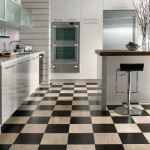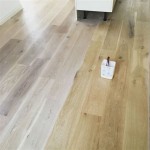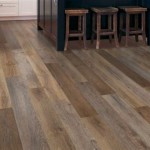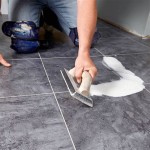The Awesome Thickness of Hardwood Flooring 2023
Hardwood flooring has been a popular choice for homeowners for centuries, and for good reason. It's durable, beautiful, and can add value to your home. But when it comes to hardwood flooring, not all thicknesses are created equal. The thickness of your hardwood flooring will affect its durability, stability, and overall performance.
So, what is the ideal thickness for hardwood flooring? The answer depends on a number of factors, including the type of wood, the subfloor, and the amount of traffic the floor will receive. However, as a general rule, thicker hardwood flooring is more durable and stable than thinner flooring.
Here is a breakdown of the different hardwood flooring thicknesses and their pros and cons:
3/8-inch Hardwood Flooring
3/8-inch hardwood flooring is the thinnest type of hardwood flooring available. It is ideal for areas with light traffic, such as bedrooms and closets. However, it is not as durable as thicker flooring and may not be suitable for areas with heavy traffic or moisture.
1/2-inch Hardwood Flooring
1/2-inch hardwood flooring is a good choice for most residential applications. It is more durable than 3/8-inch flooring and can withstand moderate traffic. It is also a good choice for areas with some moisture, such as kitchens and bathrooms.
3/4-inch Hardwood Flooring
3/4-inch hardwood flooring is the thickest type of hardwood flooring available. It is the most durable and stable type of flooring and can withstand heavy traffic and moisture. It is a good choice for commercial applications and areas with a lot of foot traffic.
Which Thickness is Right for You?
The best way to determine the right thickness for your hardwood flooring is to consult with a professional. They will be able to assess your needs and recommend the best thickness for your application.
Here are some factors to consider when choosing the thickness of your hardwood flooring:
- The type of wood: Some woods are more durable than others. If you are choosing a softer wood, you may want to go with a thicker flooring.
- The subfloor: The subfloor is the foundation of your hardwood flooring. A weak subfloor can cause your flooring to buckle or warp. If you have a weak subfloor, you will need to use a thicker flooring.
- The amount of traffic: If you have a high-traffic area, you will need to choose a thicker flooring. Thicker flooring is more resistant to wear and tear.
- The moisture level: If you live in a humid climate, you will need to choose a thicker flooring. Thicker flooring is less likely to buckle or warp in humid conditions.
Conclusion
The thickness of your hardwood flooring is an important decision. By considering the factors above, you can choose the right thickness for your needs and ensure that your hardwood flooring lasts for years to come.

2024 Flooring Trends 10 Hardwood Styles Transforming Interiors

2024 Flooring Trends 10 Hardwood Styles Transforming Interiors

Best Wood Flooring Of 2024 Top Brands To Know Evening Standard

Average Hardwood Flooring S In 2024 Forbes Home

2024 Flooring Trends 10 Hardwood Styles Transforming Interiors

Luxury Vinyl Flooring Lvt And Lvp Thickness Guide Wood Beyond Blog

Hardwood Vs Engineered Wood Flooring Which Is Best For You Forbes Home

Best Thickness For Vinyl Plank Flooring 2024 On Walls Wood

What Size Does Wood Flooring Come In And Beyond Blog

6 Best Vinyl Plank Flooring Options Tested By Home Experts
See Also







